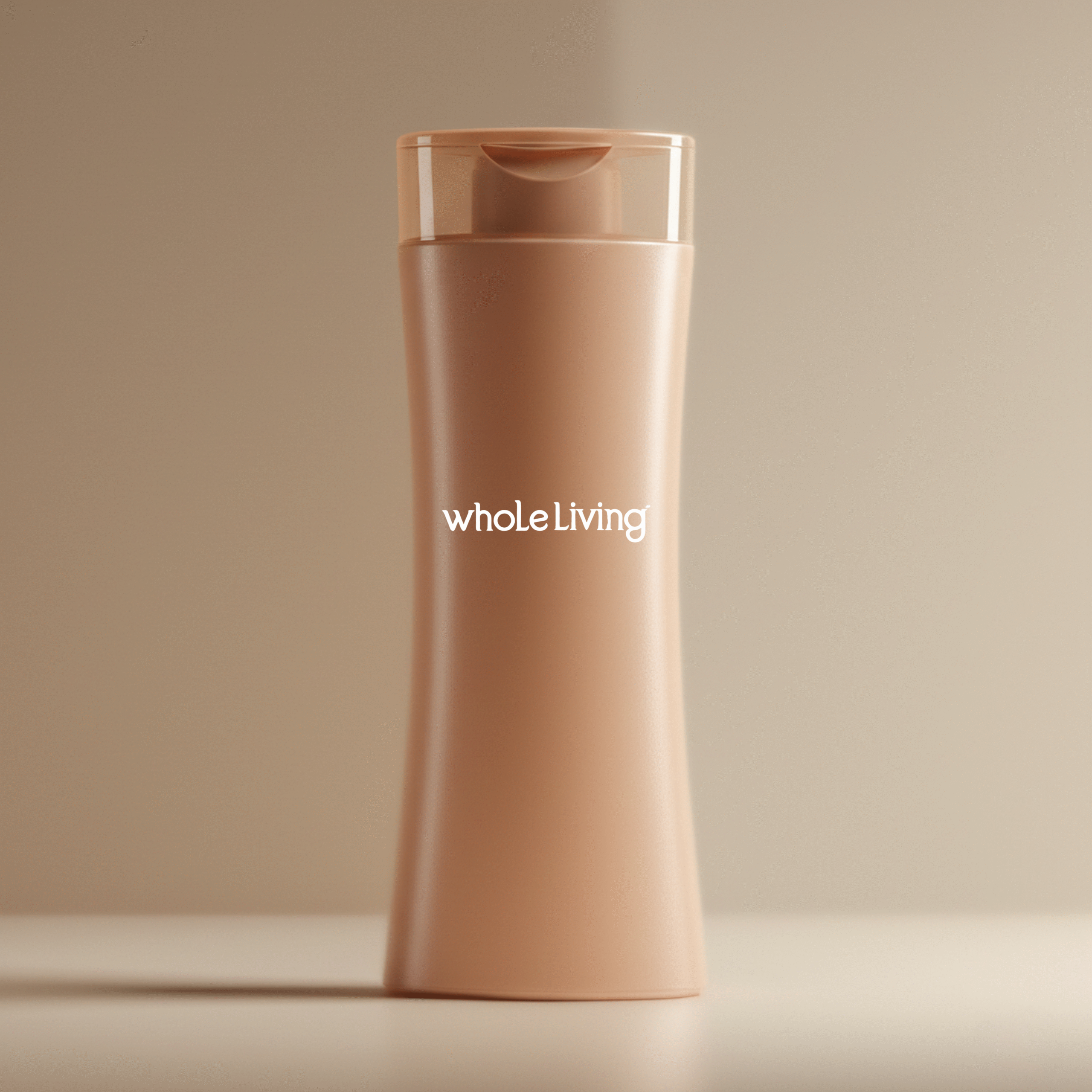In This Article
Right now, you're thinking about how to lose weight. And that’s completely okay. What matters is that you're doing it with care, not chaos. This is not about shrinking yourself to fit into a mold. It's about stepping into a healthier life that honors who you truly are.
You don’t need to punish your body to find peace with it. So many people try to lose weight by jumping into extreme diets or intense workouts. But those don’t last. You need something softer, more human, something that helps you become rather than disappear. I’m here to guide you with grace, so you can lose weight while still feeling grounded in yourself.
This isn’t a quick fix. It’s a lifestyle shift that respects your mind, your body, and your rhythm. You won’t find judgment here—only support, calm steps, and real connection. Let’s take this journey gently, together.
Why Losing Weight Isn’t Just About the Scale

Let’s be clear: your weight is not your worth. Still, losing weight can be an important part of improving your health and finding more energy in your life. But chasing numbers on the scale often leaves people feeling lost. What you really need is a deeper reason, one rooted in love and longevity, not shame or fear.
Many people focus only on quick weight loss strategies. They follow fad diets, skip meals, or push through workouts they hate. But those plans are rarely kind or lasting. You don’t need another diet that leaves you feeling empty. You need a lifestyle that supports you in feeling full—in body and in soul.
Weight loss is about more than calories and fat. It’s about changing eating habits, building healthy habits, and learning to move in ways that feel good. It’s about finding a rhythm that helps you lose excess weight without losing your joy. And it’s about healing, not hustling.
When you stop obsessing over pounds and start nurturing yourself, things begin to shift. You sleep better, breathe deeper, and feel stronger. And that’s what this journey is really about: creating a healthier life that you can love and maintain.
Tip #1: Begin With Self-Compassion, Not Punishment

You don’t have to be hard on yourself to change. In fact, self-compassion is one of the most powerful weight loss tools you can use. When you start from a place of kindness, everything else becomes easier. You begin to see food not as the enemy, but as a partner in your health. And you start to treat your body as a friend, not a project.
Most adults struggle with self-talk when it comes to losing weight. They carry guilt, shame, and frustration, often blaming themselves for not being able to stick to a diet. But the truth is, lasting success comes from healing that inner voice. When you give yourself grace, you’re more likely to make thoughtful choices and build healthy habits that last.
Weight loss efforts built on punishment almost always backfire. You might lose weight for a week, but you’ll lose motivation too. A healthier life requires deeper roots—emotional strength, patience, and peace. That’s how you build a lifestyle that doesn’t just help you lose, but helps you live.
So start with this: speak kindly to yourself. You are not a failure. You are someone learning how to support your body and improve your health. That shift in mindset is where real transformation begins.
READ ALSO: Wake-Up Weights – Whole Living Wellness
Tip #2: Eat More, Not Less… of the Right Foods

Losing weight doesn’t mean eating less. It means eating more of the right foods that actually nourish and satisfy you. When you focus on healthy foods like vegetables, fruits, whole grains, and lean proteins, your body responds with more energy and better digestion. You’re not starving yourself—you’re fueling yourself. And that’s how sustainable weight loss really happens.
The truth is, many diets teach you to restrict. But cutting too many calories or skipping meals can slow your metabolism and leave you tired. Instead, a healthy eating plan should feel like a source of strength. When you eat balanced meals full of color and texture, you naturally eat fewer processed foods and less added sugar. And your cravings start to quiet down.
Don’t fear fat—healthy fat helps keep you full and satisfied. Focus on building meals that include a mix of protein, healthy fat, and fiber-rich foods. This helps regulate your blood sugar, reduce your risk of diabetes, and keep you on track with your weight loss journey. It also makes eating feel joyful again.
You don’t have to give up your favorite meals. Just add more whole ingredients and learn to eat with mindfulness. When you eat with intention, you begin to reconnect with what your body really needs.
Tip #3: Move in a Way That Brings You Joy

Exercise doesn’t have to feel like punishment. Physical activity can be simple, joyful, and something you actually look forward to. Whether it’s a morning walk, dancing in your kitchen, or gentle stretching before bed, movement can be a beautiful way to reconnect with your body. The goal is not to exhaust yourself, but to energize yourself.
Most people think they need to do intense workouts to lose weight. But the truth is, regular physical activity in small, consistent amounts is often more effective. Things like walking, swimming, yoga, and aerobic exercise can help you lose weight while boosting your mood. You’re also more likely to stick with something that feels good instead of forced.
If you haven’t moved in a while, that’s okay. Start with ten minutes. Let your body guide you, not guilt. The more you enjoy the movement, the more likely it becomes part of your daily life. That’s what creates steady weight loss over time.
This isn’t about burning off what you ate. It’s about honoring your body by helping it feel alive, strong, and supported. Movement is a gift, not a punishment.
Tip #4: Don’t Fall for Fad Diets (Again)

Fad diets are tempting. They promise fast results, dramatic weight loss, and a fresh start. But most of them lead to burnout, frustration, and rebound weight gain. You deserve better than a plan that makes you miserable. You deserve something that actually supports your long term weight management.
When you cut out entire food groups or follow extreme rules, your body doesn’t feel safe. It starts holding onto fat, craving sugar, and feeling deprived. These diet plans may help you lose a few pounds quickly, but they rarely lead to lasting success. Instead, they damage your relationship with food and your trust in yourself.
A healthy diet isn’t about restriction—it’s about nutrition. It should help you improve your health, not cause more stress. Choosing real, whole foods over processed foods creates lasting change. And that kind of change doesn’t come from chasing the next trend.
You don’t need another diet. You need a new approach. One that nourishes your body, supports your mind, and allows you to live fully.
READ ALSO: Your Hormones and Weight Loss: How to Find Balance – Whole Living Wellness
Tip #5: Focus on Lifestyle, Not Just Weight Loss

Your goal weight matters, but the way you get there matters more. Lasting success comes from building a lifestyle that supports your health in all seasons of life. That means finding routines that feel realistic and enjoyable. It’s about making small changes that stick, not chasing fast fixes that fade.
Healthy lifestyle habits include how you eat, move, sleep, and manage stress. All of these pieces work together to support your body and mind. Losing weight is just one result of creating a healthier life. The real win is feeling better, thinking clearer, and having more energy every day.
Long term weight management is built on consistency, not perfection. That means making better choices most of the time, without expecting yourself to be perfect. It means showing up for yourself with patience, even on hard days. That’s how you create true balance.
This isn’t just a diet. It’s a new way of living. And when it comes from love instead of fear, it becomes something you can actually maintain for life.
Tip #6: Plan, Prep, and Prioritize Progress

Small plans create big results. When it comes to losing weight, a little preparation goes a long way. Planning your meals, scheduling your exercise, and setting gentle reminders can help you stay consistent. You don’t have to control every detail—just give yourself structure that supports success. The goal is progress, not perfection.
Meal prep doesn’t need to be complicated. Choose a few simple, healthy foods you love and prepare them ahead of time. Batch-cooking whole grains, chopping vegetables, or making healthy snacks for the week helps you eat well even on busy days. A healthy eating plan should make your life easier, not harder. When your kitchen is ready, your choices become easier too.
Tracking progress is helpful, but don’t let it consume you. Celebrate how your body feels, not just how it looks. Notice your energy, your mood, and your confidence as you build healthy habits. True success comes when you can maintain your routine without feeling trapped by it. Keep your focus on growth, not just the goal weight.
Tip #7: Fuel, Don’t Starve

Your body needs fuel to thrive. More calories aren’t always the enemy when they come from the right foods. Skipping meals or cutting too much can slow your metabolism and make losing weight harder. When you eat regularly and with intention, your body learns to trust you again. That trust leads to steady weight loss and better energy.
A healthy diet is not about restriction but about nourishment. Listen to your hunger cues and feed your body with balanced meals that include protein, vegetables, and whole grains. These foods give you more energy and support your weight loss journey without leaving you deprived. Eating consistently helps you lose weight while keeping your metabolism active.
If you’ve ever punished yourself by skipping meals, it’s time to shift that pattern. Healthy eating means giving your body what it needs, when it needs it. You can eat more and still lose fat when you choose nutrient-dense foods. Let eating be an act of care, not control.
READ ALSO: Walking for Weight Loss
Tip #8: Build Strength from the Inside Out

Strength comes from more than lifting weights—it comes from within. When you move your body with purpose, you build both physical and emotional resilience. Strength training helps you lose fat and tone your muscles while supporting a healthy metabolism. It’s one of the best weight loss strategies because it continues to burn calories long after your workout ends.
Building muscle also helps your body manage blood sugar levels and reduce the risk of diabetes. The more muscle you have, the easier it becomes to maintain your weight and overall health. Think of strength training as an investment in your future self, not just your current goal weight. Each lift, each movement, is a step toward confidence and stability.
Your body composition tells a richer story than the scale ever could. Losing weight isn’t just about losing pounds—it’s about gaining strength, endurance, and self-trust. Every time you challenge your muscles, you remind yourself of your power. You’re not just building a body you love—you’re building a life that feels strong and steady.
Tip #9: Be Patient With the Process

Weight loss takes time. Real, lasting progress rarely happens overnight, and that’s okay. It’s normal for your body to change slowly—it’s learning, adapting, and healing. Instead of chasing fast results, focus on small, steady improvements. Patience helps you maintain balance and avoid burnout.
Comparison steals your joy. Everyone’s body responds differently to exercise and diet, so stay focused on your own journey. Progress can look like better sleep, glowing skin, or calmer energy. Celebrate those quiet victories along the way. They’re proof that you’re growing, not just losing.
You don’t need to do everything perfectly to succeed. Listen to your body and adjust with grace. Some weeks you may lose pounds, and some weeks you may not—but that doesn’t mean you’re failing. Every choice you make toward better health matters. Trust the process and honor the pace that feels right for you.
Whole Living: How This Journey Becomes a Way of Life

Losing weight is only one part of a greater transformation. Whole living means caring for your body, mind, and spirit with the same gentle focus. It’s about creating harmony in how you eat, move, rest, and think. When you align your lifestyle with your values, weight management becomes natural—not forced.
This journey teaches you how to nourish yourself fully. Eating healthy foods, practicing regular physical activity, and making time for rest all contribute to a healthier life. The more you care for your body, the more it gives back in energy and balance. You’re not just building habits—you’re creating a sustainable rhythm of well-being.
In whole living, weight loss is not the final goal. It’s a doorway to a richer, calmer life. You begin to see health as something beautiful, not something to chase. And that peace carries into everything you do.
You’re Not Losing Yourself—You’re Coming Home
Weight loss isn’t a war against your body. It’s a reunion with it. When you approach this journey with intention, nourishment, and self-respect, you don’t just lose weight—you gain a higher quality of life, more energy, and deeper peace. You learn to eat with joy, move with purpose, and live with balance.
Every meal you plan, every walk you take, every mindful choice adds up. These small acts of care become your strength. They remind you that success is not about being smaller—it’s about feeling whole. The more you listen to your body, the more you realize it’s been guiding you home all along. And I’m right here, cheering for you every step of the way.






















